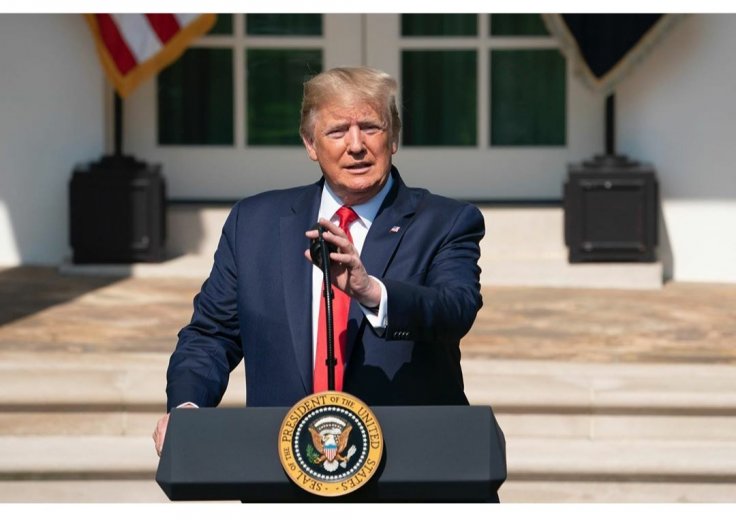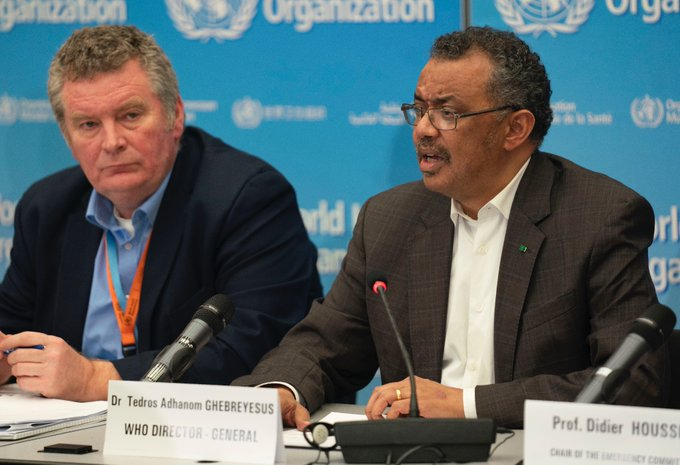On Tuesday, Donald Trump said that he had given his administration orders to freeze funding to the World Health Organization (WHO) over its handling of the coronavirus pandemic, a decision that has been gravely condemned by the UN and leading health experts.
As previously reported, Trump said he would put US funding to the organization on hold for 60-90 days pending a review "to assess theWorld Health Organization's role in severely mismanaging and covering up the spread of the coronavirus."
'Crime against humanity'
AS pointed out by The Guardian, several leading health experts have lambasted the US President over his decision to cut funding to WHO as a "crime against humanity" and a "damnable" act that cost several lives considering that the United States is the single largest contributor to the organization.
Richard Horton, the editor-in-chief of the Lancet medical journal, wrote that Trump's decision was "a crime against humanity ... Every scientist, every health worker, every citizen must resist and rebel against this appalling betrayal of global solidarity."

Echoing Horton's sentiments, Dr Nahid Bhadelia, an infectious disease doctor and associate professor at Boston University's school of medicine, said the cut was "an absolute disaster. WHO is a global technical partner, the platform through which sovereign countries share data/technology, our eyes on the global scope of this pandemic."
Laurie Garrett, a former senior fellow of the Council on Foreign Relations, said the decision was a "damnable" act by a "spiteful" Trump and would cost lives. "Meanwhile, WHO is the only lifeline most African, Latin American and Asia Pacific nations have."
UN head says now is 'not the time'
Trump's decision also drew criticism from the head of the United Nations, who said funding to the WHO was "absolutely critical to the world's efforts to win the war against Covid-19."
Antonio Guterres, the UN Secretary General, said it was "not the time" to hold funding or to point fingers. "Once we have finally turned the page on this epidemic, there must be a time to look back fully to understand how such a disease emerged and spread its devastation so quickly across the globe, and how all those involved reacted to the crisis," said Guterres.
"The lessons learned will be essential to effectively address similar challenges, as they may arise in the future. But now is not that time ... It is also not the time to reduce the resources for the operations of the World Health Organization or any other humanitarian organization in the fight against the virus."
Dr Amesh Adalja, from the Johns Hopkins University Center for Health Security also agrees with Guterres. While acknowledging that WHO did make mistakes and may need reform but that issue needs to be taken care of after the crisis has ended. "It's not the middle of a pandemic that you do this type of thing," he said.
WHO's mismanagement of the coronavirus pandemic
The WHO has been subjected to a lot of criticism over its handling of the outbreak, and has been also accused of favoring China, given the Communist Party's early suppression of information and punishment of whistle-blowers.

A large chunk of the blame on WHO has revolved around a January 14 tweet from the WHO that said "preliminary investigations conducted by the Chinese authorities have found no clear evidence of human-to-human transmission."
However, WHO officials warned global health leaders in technical briefings on January 10 and 11, and briefed the press on January 14, that human-to-human transmission was a strong possibility given the experience of past coronavirus epidemics and urged suitable precautions.









